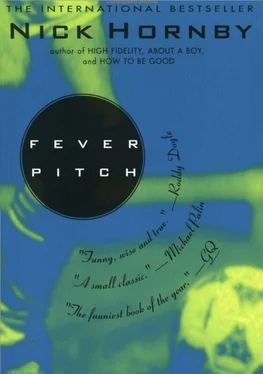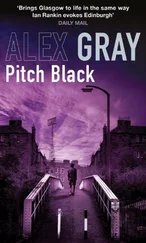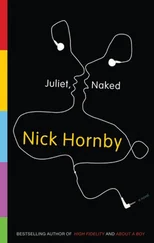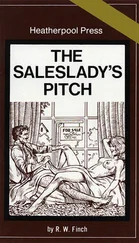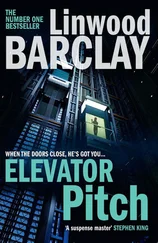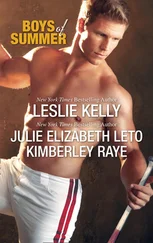An hour before the kick-off the view from my spot was spectacular. No corner of the pitch was obscured, and even the far goal, which I had imagined would look tiny, was quite clear. By three o’clock, however, I could see a little strip of the pitch, a narrow grass tunnel running from the near penalty area to the touchline at the far end. The corner flags had disappeared entirely, and the goal beneath me was visible only if I jumped at the crucial moment. Whenever there was a near-miss at our end, the crowd tumbled forward; I was forced seven or eight steps down the terracing and, when I looked round, the carrier bag containing my programme and my Daily Express that I had placed at my feet seemed miles away, like a towel on the beach when you’re in a rough sea. I did see the one goal of the game, a George Graham volley from about twenty-five yards, but only because it was scored at the Clock End.
I loved it there, of course. I loved the different categories of noise: the formal, ritual noise when the players emerged (each player’s name called in turn, starting with the favourite, until he responded with a wave); the spontaneous shapeless roar when something exciting was happening on the pitch; the renewed vigour of the chanting after a goal or a sustained period of attacking. (And even here, among younger, less alienated men, that football grumble when things were going badly.) After my initial alarm I grew to love the movement, the way I was thrown towards the pitch and sucked back again. And I loved the anonymity: I was not, after all, going to be found out. I stayed for the next seventeen years.
There is no North Bank now. The Taylor Report recommended that, post-Hillsborough, football stadia should become all-seater, and the football clubs have all decided to act on that recommendation. In March 1973, I was among a crowd of sixty-three thousand at Highbury for an FA Cup replay against Chelsea; crowds of that size are no longer possible, at Highbury or in any other English stadium apart from Wembley. Even in 1988, the year before Hillsborough, Arsenal had two crowds of fifty-five thousand in the same week, and the second of them, the Littlewoods Cup semi-final against Everton, now looks like the last of the sort of game that comes to represent the football experience in the memory: floodlights, driving rain and an enormous, rolling roar throughout the match. So, yes, of course it is sad; football crowds may yet be able to create a new environment that electrifies, but they will never be able to recreate the old one which required vast numbers and a context in which those numbers could form themselves into one huge reactive body.
Even sadder, though, is the way that Arsenal have chosen to redevelop the stadium. It cost me 25p to watch the Ipswich match; the Arsenal Bond scheme means that from September 1993 entry to the North Bank will cost a minimum £1100 plus the price of a ticket , and, even allowing for inflation, that sounds a bit steep to me. A debenture plan makes sound financial sense for the club, but it is inconceivable that football at Highbury will ever be the same again.
The big clubs seem to have tired of their fan-base, and in a way who can blame them? Young working-class and lower-middle-class males bring with them a complicated and occasionally distressing set of problems; directors and chairmen might argue that they had their chance and blew it, and that middle-class families—the new target audience—will not only behave themselves, but pay much more to do so.
This argument ignores central questions about responsibility, fairness, and whether football clubs have a role to play in the local community. But even without these problems, it seems to me that there is a fatal flaw in the reasoning. Part of the pleasure to be had in large football stadia is a mixture of the vicarious and the parasitical, because unless one stands on the North Bank, or the Kop, or the Stretford End, then one is relying on others to provide the atmosphere; and atmosphere is one of the crucial ingredients of the football experience. These huge ends are as vital to the clubs as their players, not only because their inhabitants are vocal in their support, not just because they provide clubs with large sums of money (although these are not unimportant factors) but because without them nobody else would bother coming .
Arsenal and Manchester United and the rest are under the impression that people pay to watch Paul Merson and Ryan Giggs, and of course they do. But many of them—the people in the twenty pound seats, and the guys in the executive boxes—also pay to watch people watching Paul Merson (or to listen to people shouting at him). Who would buy an executive box if the stadium were filled with executives? The club sold the boxes on the understanding that the atmosphere came free, and so the North Bank generated as much income as any of the players ever did. Who’ll make the noise now? Will the suburban middle-class kids and their mums and dads still come if they have to generate it themselves? Or will they feel that they have been conned? Because in effect the clubs have sold them tickets to a show in which the principal attraction has been moved to make room for them.
One more thing about the kind of audience that football has decided it wants: the clubs have got to make sure that they’re good, that there aren’t any lean years, because the new crowd won’t tolerate failure. These are not the sort of people who will come to watch you play Wimbledon in March when you’re eleventh in the First Division and out of all the Cup competitions. Why should they? They’ve got plenty of other things to do. So, Arsenal … no more seventeen-year losing streaks, like the one between 1953 and 1970, right? No flirting with relegation, like in 1975 and 1976, or the odd half-decade where you don’t even get to a final, like we had between 1981 and 1987. We mug punters put up with that, and at least twenty thousand of us would turn up no matter how bad you were (and sometimes you were very, very bad indeed); but this new lot … I’m not so sure.
ARSENAL v COVENTRY
4.11.72
The only trouble with the North Bank was that I bought the whole package. In the second half of my third game there (the middle one against Manchester City was memorable only because our new signing Jeff Blockley, an incompetent to rival Ian Ure, pushed a City corner against the underside of the bar with his hands, the ball bounced down behind the line and the referee wouldn’t give them the penalty or the goal—how we laughed!), Coventry City’s Tommy Hutchison scored a stunning solo goal. He picked the ball up about forty yards out on the left wing, left a trail of Arsenal defenders in his wake, and curled the ball round Geoff Barnett as he came out right into the far corner. On the North Bank there was a split second of silence as we watched the Coventry fans cavorting around on the Clock End like dolphins, and then came the fierce, unanimous and heartfelt chant, “You’re going to get your fucking heads kicked in.”
I had heard it before, obviously. For a good fifteen years it was the formal response to any goal scored by any away team at any football ground in the country (variations at Highbury were “You’re going home in a London ambulance.” “We’ll see you all outside.” and “Clock End, do your job.” (the Arsenal supporters at the Clock End being nearer to the opposing fans, and thus charged with the responsibility of vengeance). The only difference on this occasion was that I roared along with the imprecation for the first time. I was as outraged by the goal, as offended and as stricken, as anyone on the terrace; it was fortunate that there was an entire football pitch between me and the Coventry fans, or, or … or I would have done such things, I knew not what they were, but they would have been the terror of N5.
Читать дальше
